
JOURNAL OF AVIAN BIOLOGY
Scope & Guideline
Championing the study of birds to inspire conservation efforts.
Introduction
Aims and Scopes
- Avian Ecology and Behavior:
Research on the ecological roles of birds, their behaviors in various environments, and interactions with other species, including aspects such as foraging strategies, mating systems, and social structures. - Physiology and Morphology:
Studies exploring physiological adaptations, morphological traits, and their implications for survival, reproduction, and migration patterns in birds. - Conservation and Environmental Impact:
Investigations into the effects of environmental changes, anthropogenic influences, and habitat loss on bird populations, emphasizing conservation strategies and policy recommendations. - Genetics and Evolution:
Research examining genetic diversity, evolutionary processes, and phylogenetic relationships among bird species, including the implications of hybridization and speciation. - Migration and Movement Patterns:
Studies focused on migratory behaviors, navigation, and the influence of climatic and environmental factors on migration routes and timing.
Trending and Emerging
- Impact of Climate Change:
An increasing number of studies focus on how climate change affects avian behavior, physiology, and population dynamics, highlighting the urgency of understanding these impacts for conservation efforts. - Urban Ecology and Adaptation:
There is a growing interest in how birds adapt to urban environments, including changes in behavior, morphology, and reproductive strategies, reflecting the broader implications of urbanization on wildlife. - Anthropogenic Stressors:
Research examining the effects of multiple anthropogenic stressors—such as pollution, habitat modification, and noise—on avian health and behavior is gaining traction, emphasizing the need for integrated approaches to conservation. - Genomic and Molecular Studies:
An upward trend in the use of genomic tools and molecular techniques to understand avian diversity, health, and evolutionary mechanisms is evident, representing advancements in the field. - Behavioral Ecology of Brood Parasitism:
Increasing interest in the dynamics and evolutionary implications of brood parasitism, including host-parasite interactions and counter-adaptive strategies, showcases a nuanced area of avian behavior.
Declining or Waning
- Traditional Taxonomy Studies:
Research focused solely on traditional taxonomic classifications has decreased as the field shifts toward integrative approaches that combine genetic, morphological, and ecological data. - Static Habitat Studies:
Papers focusing on static habitat descriptions without consideration for dynamic changes or anthropogenic impacts have become less prevalent, reflecting a trend towards more applied ecological research. - Purely Descriptive Studies:
There is a noticeable decline in purely descriptive studies that do not advance hypotheses or provide novel insights, as the journal emphasizes more hypothesis-driven research.
Similar Journals
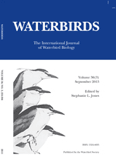
WATERBIRDS
Exploring the Depths of Avian ScienceWATERBIRDS, published by the WATERBIRD SOC, serves as a vital scholarly resource in the field of Animal Science and Zoology. With its ISSN 1524-4695 and E-ISSN 1938-5390, this journal has established a significant presence since its inception in 1996, continuing to contribute valuable insights and research up to 2024. Recognized for its impact within the academic community, WATERBIRDS is currently positioned in the third quartile (Q3) for its category in 2023, ranking 335 out of 490 in Scopus's Agricultural and Biological Sciences sector, which underscores its role in promoting the study of avian species and their habitats. The journal is accessible to a wider audience, aligning with the growing demand for open access to scientific knowledge. By disseminating research that addresses both ecological and conservation issues pertinent to waterbirds, this publication serves as an essential platform for researchers, professionals, and students dedicated to advancing the understanding of avian biology and related fields.
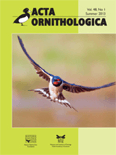
ACTA ORNITHOLOGICA
Championing the science of birds since 1981.ACTA ORNITHOLOGICA is a prominent peer-reviewed journal dedicated to advancing the field of ornithology. Published by the MUSEUM & INST ZOOLOGY in Poland, the journal focuses on a wide array of topics related to avian biology, ecology, and conservation, supporting the dissemination of high-quality research aimed at understanding bird populations and their habitats. With a respectable impact factor reflected in its Q3 rank within the fields of Animal Science and Zoology, ACTA ORNITHOLOGICA stands as a reliable source for professionals and academics alike. The journal is indexed in major databases like Scopus, further contributing to its visibility and accessibility to scholars worldwide. Engaging with this journal provides researchers and students with invaluable insights and opportunities to contribute to the growing body of knowledge in ornithological studies as it continues to maintain its commitment to excellence and relevance in the scientific community from its inception in 1981.
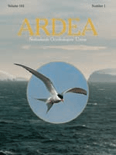
ARDEA
Unraveling the mysteries of avian life since 1981.ARDEA, published by the Nederlandse Ornithologische Unie, is a prominent journal in the fields of Animal Science, Zoology, and Ecology. With its rich history spanning from 1981 to the present, ARDEA serves as a vital platform for researchers and professionals dedicated to avian studies and the ecological sciences. This quarterly journal is recognized in the Q3 category for both Animal Science and Ecology, as per the latest rankings, and maintains an impressive global standing within its subject areas. Although it operates without an open access model, the journal provides significant insights and contributions to the understanding of bird biology, conservation, and evolution. Researchers and students seeking to advance their knowledge in ornithology and related fields will find ARDEA to be an indispensable resource, promoting high-quality research and fostering academic collaboration.
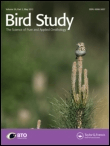
BIRD STUDY
Advancing avian knowledge for a sustainable future.BIRD STUDY, an esteemed journal published by Taylor & Francis Ltd, stands at the forefront of avian research, contributing significantly to the fields of ecology, evolution, behavior, and conservation. With its ISSN 0006-3657 and E-ISSN 1944-6705, this journal has been a cornerstone of ornithological studies since its inception in 1954 and continues to provide a critical platform for the dissemination of knowledge through 2024 and beyond. It holds a respectable Q3 quartile ranking in both Ecology, Evolution, Behavior and Systematics and Nature and Landscape Conservation, reflecting its pivotal role in the academic community. While the journal is not open access, it continues to attract submissions from a diverse array of researchers and professionals eager to share their findings on the intricate and dynamic interactions of birds within their ecosystems. As the global focus on biodiversity and conservation intensifies, BIRD STUDY remains dedicated to fostering knowledge and encouraging evidence-based practices that aim to protect avian species and their habitats.

Avian Conservation and Ecology
Championing open access for avian knowledge and action.Avian Conservation and Ecology, published by the Resilience Alliance, is a premier open-access journal dedicated to advancing the scientific understanding and management of avian populations and their ecosystems. With an ISSN of 1712-6568, this journal has been a vital resource since its inception in 2005, ensuring that research findings are readily accessible to the global community. Based in Canada, it covers a diverse array of topics within the realms of Animal Science, Zoology, Ecology, and Conservation. Recognized for its rigor, it boasts a distinguished Q1 ranking in Animal Science and Zoology, and maintains respectable positions in various ecological categories as of 2023. Researchers and students alike will find valuable insights and innovative studies that address key conservation challenges, reflecting the journal's commitment to fostering ecological resilience and informing policy-making. As a platform that champions open access, Avian Conservation and Ecology plays a crucial role in enhancing collaboration and communication among scientists, policy-makers, and the public。
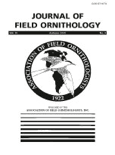
JOURNAL OF FIELD ORNITHOLOGY
Exploring the Frontiers of Field OrnithologyJOURNAL OF FIELD ORNITHOLOGY, published by the Resilience Alliance, is a premier academic journal dedicated to advancing knowledge in the fields of ornithology, ecology, and animal behavior. With an ISSN of 0273-8570 and a growing E-ISSN of 1557-9263, this journal has been a vital platform for researchers since its inception in 1996, continuing to publish cutting-edge studies up until 2024. The journal is recognized within the academic community, holding a Q2 ranking in Animal Science and Zoology and a Q3 ranking in Ecology, Evolution, Behavior and Systematics as of 2023. While the journal does not currently operate under an open access model, it remains a critical source for researchers, students, and professionals seeking to explore innovative research and discoveries in field ornithology. The diverse range of topics covered underscores its commitment to highlighting significant findings and fostering a deeper understanding of avian species and their ecosystems.

Avian Biology Research
Fostering a deeper understanding of our feathered friends.Avian Biology Research, published by SAGE PUBLICATIONS LTD, is a leading journal dedicated to advancing the study of avian species through high-quality, peer-reviewed research. With an ISSN of 1758-1559 and an E-ISSN of 1758-1567, this journal has established itself as a vital resource within the fields of Animal Science and Zoology, as well as Ecology, Evolution, Behavior, and Systematics. The journal is currently ranked Q3 in both categories according to the 2023 release of the category quartiles, and it contributes significantly to the global understanding of avian biology, including behavior, physiology, and conservation efforts. Positioned within the competitive landscape of the Scopus rankings, it finds itself amidst a diverse array of research, with medical and environmental implications. As an open-access journal, Avian Biology Research ensures greater accessibility to its contents, fostering disseminative opportunities for researchers, professionals, and students alike. With a publication window spanning from 2008 to 2024, it continues to be an invaluable platform for the dissemination and dialogue of avian research, thereby enlightening future inquiries and driving scientific advancements in this crucial area of biology.
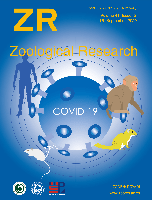
ZOOLOGICAL RESEARCH
Advancing Animal Science Through Open Access ResearchZoological Research, published by Science Press, stands as a premier open-access journal in the fields of animal science, zoology, and ecology. Since its inception in 1980, it has fostered an inclusive platform for innovative research and dialogue within the scientific community, enabling researchers from across the globe to share their findings and insights. The journal's significant impact is underscored by its classification in the Q1 quartile across multiple categories, including Animal Science and Zoology, Ecology, and Nature Conservation for 2023, as well as its impressive rankings within Scopus, placing it in the top tier of its respective fields. Situated in Beijing, China, Zoological Research not only contributes to advancing knowledge but also emphasizes the critical importance of conservation practices in today’s rapidly changing ecosystems. With its commitment to open access, researchers, educators, and students alike benefit from immediate, unrestricted access to vital scientific information, making it an essential resource for anyone involved in the biological sciences.
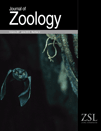
JOURNAL OF ZOOLOGY
Bridging foundational research with innovative zoological studies.JOURNAL OF ZOOLOGY, published by Wiley, stands as a premier scholarly journal in the fields of Animal Science and Zoology, renowned for its outstanding contributions to the knowledge of animal biology and ecology. With an impressive impact factor and a strong ranking in the Q1 category for Animal Science and Zoology, as well as Q2 for Ecology, Evolution, Behavior, and Systematics, the journal rigorously engages with both foundational research and groundbreaking discoveries since its inception in 1830. Located in Hoboken, New Jersey, this journal is dedicated to fostering the academic community's understanding of zoological sciences, providing access to important research that shapes wildlife conservation efforts and ecological studies. Although the journal does not currently offer open access options, it continues to attract significant attention, as evidenced by its strong Scopus rankings in related categories. Researchers, professionals, and students will find invaluable resources in the JOURNAL OF ZOOLOGY to advance their understanding of animal life and the ecological challenges it faces today.

JOURNAL OF ORNITHOLOGY
Unveiling Insights into Avian EcologyJOURNAL OF ORNITHOLOGY, published by Springer Heidelberg, is a leading international journal dedicated to the study of birds and their conservation. With an ISSN of 2193-7192 and an E-ISSN of 2193-7206, this journal serves as a crucial platform for disseminating innovative research focused on avian biology, ecology, and behavior, making significant contributions to the fields of Agricultural and Biological Sciences and Animal Science and Zoology, where it holds a commendable rank of #156 out of 490 in Scopus. Established from 2004 and continuing through 2024, the journal strives not only to advance academic scholarship but also to inform practical conservation efforts globally. While currently not open access, it remains a vital resource for researchers, professionals, and students seeking high-quality studies and findings that influence the understanding and preservation of bird species. The journal's commitment to excellence in science highlights its importance in ornithological research, offering insights that are both profound and actionable.